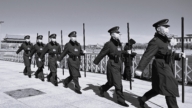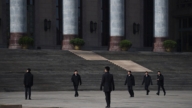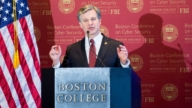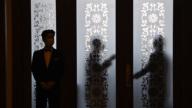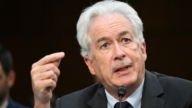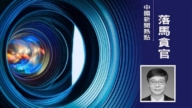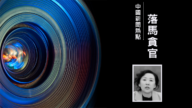【新唐人2014年05月23日訊】上世紀80年代末,風靡中國一時的電視記錄片《河殤》,被許多人稱為「六四事件」的思想先導。《河殤》總撰稿人蘇曉康接受本臺記者專訪時說,《河殤》跟「六四事件」緊密聯繫在一起,更多的原因是,當時的中共總書記趙紫陽跟中共元老王震,圍繞這部作品展開了激烈的權力鬥爭。
1989年中共「六四鎮壓」之後,發佈了一份通緝名單,其中包括7名知識份子:嚴家祺、包遵信、陳一諮、萬潤南、蘇曉康、王軍濤、陳子明。
其中,蘇曉康被視為中國80年代的報導文學代表人物之一。「六四」後,他被中共指控為「八九學運」的幕後黑手,而流亡美國。
蘇曉康2009年向媒體披露,他作為一名作家,之所以登上政治局常委擬定的要犯名單,是來自中共元老王震的欽點。
根據已故中共總書記趙紫陽的生前錄音回憶錄,在1988年10月的中共「三中全會」上,王震突然攻擊電視記錄片《河殤》,要求當局正式批判。
蘇曉康5月21號接受《新唐人》採訪時說,趙紫陽跟王震之間就《河殤》發生過激烈的爭論。
電視片《河殤》總撰稿人蘇曉康:「趙紫陽就說,這是一個文藝界的問題。為了糾正文革時候的錯誤,中央從此以後不再對任何文藝作品、文學作品表態發言。不把它變成政治問題。這是胡耀邦時期一個很重大的新的政策。因此趙紫陽就說,我們中央不要對一個作品表態嘛。你也不要表態嘛。你要表態是你個人的問題,不代表我們中央。」
蘇曉康透露,王震攻擊《河殤》是「醉翁之意不在酒」,是為了打擊趙紫陽。而趙紫陽也看得很清楚。
蘇曉康:「原因是甚麼呢?原因我們在《河殤》裡面用了不少趙紫陽的鏡頭。但是實際上我們也用了很多鄧小平的鏡頭。可是王震他不敢去說鄧小平,他單說趙紫陽。他們是要把趙紫陽推倒,搞下臺,他們已經把胡耀邦搞下臺了,他們接著就要把趙紫陽搞下臺。他們要讓他們自己的兒子來接班。」
蘇曉康表示,這是黨內的權力鬥爭,王震和另一名中共元老薄一波擔任直接打手。因為中共前領導人鄧小平用了胡耀邦、趙紫陽作為改革的兩個主要領導人,一個任總理,一個任總書記。而共產黨裡面的那些頑固派元老,想讓自己的兒子和女婿來接班,因此要搞掉胡耀邦和趙紫陽兩個人。在「六四事件」之前,他們已經把胡耀邦搞掉了。
蘇曉康披露,87年第一次播《河殤》時,四個中央領導趙紫陽、李鵬、楊尚昆、李先念調片子看時,趙紫陽當時的反應是,「幹嘛罵老祖宗呢?」
蘇曉康:「這個是當時的廣播電視部部長親自告訴我的,他說,你看,咱們總書記並不喜歡你的《河殤》耶。所以我也沒有想到,他後來怎麼讓鮑彤這麼出來公開的支持《河殤》。不久他接見李光耀的時候,他居然送了李光耀一件禮物,是甚麼?就是一套《河殤》錄像帶。所以《新華社》一報導以後,王震大怒。」
蘇曉康認為,趙紫陽骨子裡仍然是一個很傳統的人。至於他對抗王震、公開支持《河殤》,則是在維護文學創作自由的政策。
蘇曉康:「所以你可以看到,趙紫陽是個正直的人物。他私底下,他個人的愛好是一回事,他在公開場合,在政治上,他的態度是另外一回事。」
蘇曉康認為,中國文明在近代落後了。他說,中共在綁架中國的65年裡,毀滅中國文化,敗壞國人道德,令人痛心疾首。
1988年9月,王震讓他的大秘書唐玉向《人民日報》老總譚文瑞,傳達對電視片《河殤》的批評,其中有一句﹕「他與共產黨有殺父之仇!」,蘇曉康聽後馬上調查《河殤》劇組,問是否有人父親被鎮壓?但是一個也沒有找到。後來,他到了海外才知道,王震指的是趙紫陽。
蘇曉康從黨內人士那裏聽說,趙紫陽的父親,按照共產黨的說法是一個地主。趙紫陽參軍離開家鄉,而另一支共產黨部隊到了他家鄉,把他父親抓起來,關到監獄裡。後來趙紫陽父親死在監獄裡。
採訪編輯/秦雪 後製/孫寧
Zhao Ziyang vs. Wang Zhen: Power Struggle over TV Documentary
River Elegy, also known as Heshang, was a popular Chinese
TV documentary in the late 1980s believed to have driven
the Tiananmen Square Protest.
In an exclusive interview with NTD, Heshang’s chief writer
Su Xiaokang explains that the link between Heshang
and the Tiananmen Student Protest was more
of a fierce power struggle between then General Secretary
Zhao Ziyang and veteran cadre Wang Zhen.
After the 1989 crackdown on the Tiananmen Square protest,
the Chinese Communist Party (CCP) issued a wanted list
whose names included seven intellectuals— Yan Jiaqi,
Bao Zunxin, Chen Yizi, Wan Runnan, Su Xiaokang,
Wang Juntao, and Chen Ziming.
Su Xiaokang was considered a representative author
of 1980’s non-fiction novels in China.
After the June 4th Massacre, he went into exile in the U.S.
after the CCP accused him of being a guiding hand
of the student movement.
In 2009, Su Xiaokang disclosed to media that, as a writer,
he was on the wanted list of the Politburo Standing Committee
because of CCP veteran cadre Wang Zhen.
According to the late Zhao Ziyang’s recorded memoirs,
Wang Zhen attacked Heshang during
the Third Plenary Session in October 1988 and demanded
a formal critique from the Central.
In the May 21 interview, Su Xiaokang told NTD that
Zhao Ziyang had a heated debate with Wang Zhen over
the River Elegy.
Su Xiaokang, Chief Writer of Heshang: “Zhao Ziyan said
that this is an issue in literary and art circles.
To correct mistakes made during the Cultural Revolution,
the central henceforth will no longer make remarks
on literature or make it a political issue.
That was a major policy determined by Hu Yaobang.
Therefore, Zhao said, we do not state our opinion on a work
as the Central, you should not either.
If you want to, then that’s your personal issue,
and it does not represent the Central."
Su Xiaokang says that in attacking Heshang, Wang Zhen
had an ulterior motive which was to attack Zhao Ziyang,
who knew it clearly.
Su Xiaokang: “Why? It is because we used many shots
of Zhao’s in the River Elegy.
In fact, there were also many Deng Xiaoping shots.
But, Wang Zhen would not dare to pick on Deng,
so he simply picked on Zhao.
They meant to bring down Zhao Ziyang.
They have brought down Hu Yaobang.
Zhao Ziyang was the next, so that their sons can take over."
Su Xiaokang indicates there was a power struggle within
the party, and veteran cadres Wang Zhen and Bo Yibo
were the ringleaders.
Former CCP leader Deng Xiaoping engaged Hu Yaobang,
then General Secretary and Zhao Ziyang, then Premier,
as the two main leaders in reform.
However, the diehard veterans wanted their son
and son-in-law to take over the leadership.
Therefore they worked to get rid of Hu and Zhao.
Prior to the June 4th Massacre, Hu Yaobang
had already been forced to resign.
Su Xiaokang discloses that when River Elegy first aired
in 1987, the four central leaders Zhao Ziyang, Li Peng,
Yang Shangkun and Li Hsien-nien had watched the film.
Zhao Ziyang reacted to the film, “Why criticize
our ancestors?"
Su Xiaokang: “That was what the then-minister
of broadcasting ministry told me.
He said, ‘Look, our General Secretary does not like your
Heshang.’
I would not have thought that Zhao would actually have
Bao Tong publicly support Heshang.
Soon, during his meeting with Lee Kuan Yew,
he actually gave a gift to Lee Kuan Yew.
What was the gift? The video tape of Heshang.
After the Xinhua News report, Wang Zhen was furious."
Su Xiaokang believes that deep down, Zhao Ziyang
was a man of tradition.
His fight against Wang Zhen and open support of Heshang
were to maintain the policy in freedom of literary creation.
Su Xiaokang: “So you can see that Zhao Ziyang
was a righteous figure.
Privately, his personal hobby was one thing, whereas
in public, in politics, his attitude was another."
Su Xiaokang believes Chinese civilization has fallen behind.
He said the 65 years of destruction of Chinese culture
and morality since the CCP hijacked China are disheartening.
In September 1988, Wang Zhen had his secretary Tang Yu
convey his criticism of Heshang to People’s Daily
CEO Tan Wenrui, where he mentenioned the words,
“the CCP killed his father".
Su Xiaokang attempted to find out whose father
was killed upon hearing this remark.
He had only learned that Wang Zhen was referring
to Zhao Ziyang after he went abroad.
Su Xiaokang was told by insiders that Zhao Ziyang’s father
was a landlord, according to the CCP’s definition.
After Zhao left home to join the CCP army, CCP troops
went to his hometown and imprisoned his father.
Zhao’s father later died in prison.
Interview & Edit/Qin Xue Post-Production/Sun Ning


